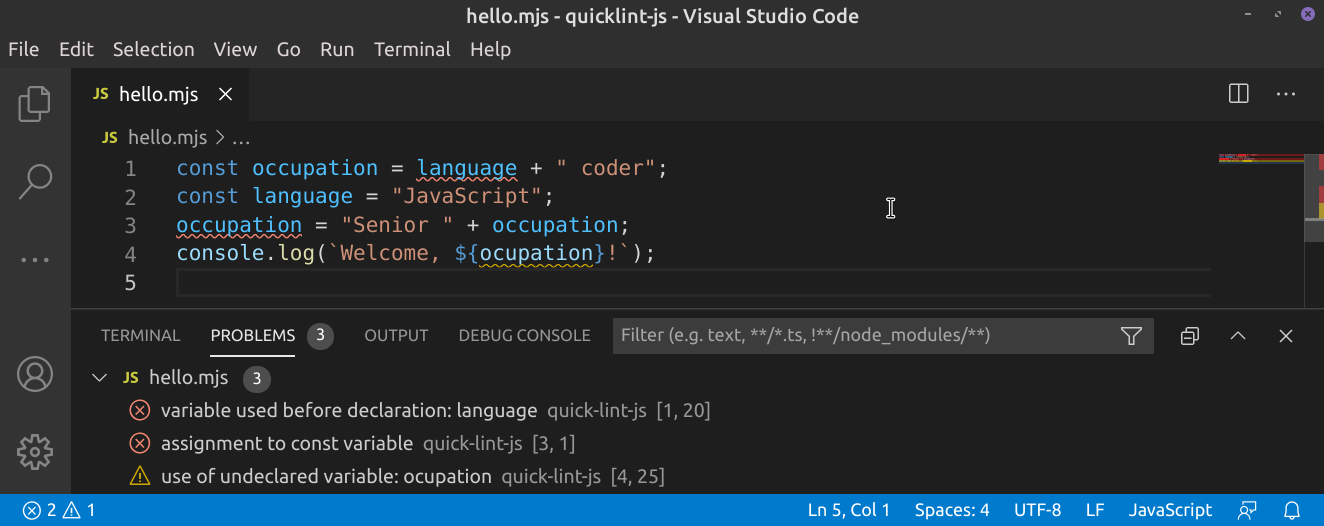quick-lint-js finds bugs in JavaScript programs.
quick-lint-js finds many bugs, including:
- Using a variable which does not exist
- Assigning to a
constvariable - Using
awaitin a non-asyncfunction - Syntax errors
See installation instructions for how to install quick-lint-js' CLI, LSP server, and editor plugins.
See build instructions for how to build quick-lint-js for development.
Bugs and feature requests: file an issue on GitHub
IRC: ask questions in #quick-lint-js on Libera.Chat
Security bug reports (private disclosure): email strager.nds@gmail.com
-
Performance. You use quick-lint-js in text editors and IDEs to show bugs as they are written. quick-lint-js must be fast to make feedback responsive.
- Small design. The less infrastructure and developer conveniences used within quick-lint-js, the less time quick-lint-js wastes due to this bloat.
- Few features. Features add run-time costs. With fewer features, quick-lint-js gives you feedback sooner.
-
High signal. quick-lint-js finds bugs, not nitpicks. You can use quick-lint-js in any project, no matter the size or style.
- No opinions. quick-lint-js doesn't complain about style issues, like
using
'strings'vs"strings". It complains about real bugs which everyone agrees are bugs. - No false positives. If quick-lint-js complains, you know it's a bug in your code.
- No configuration. quick-lint-js works out-of-the-box. You don't need configuration files to tell quick-lint-js what buggy code looks like.
- No opinions. quick-lint-js doesn't complain about style issues, like
using
